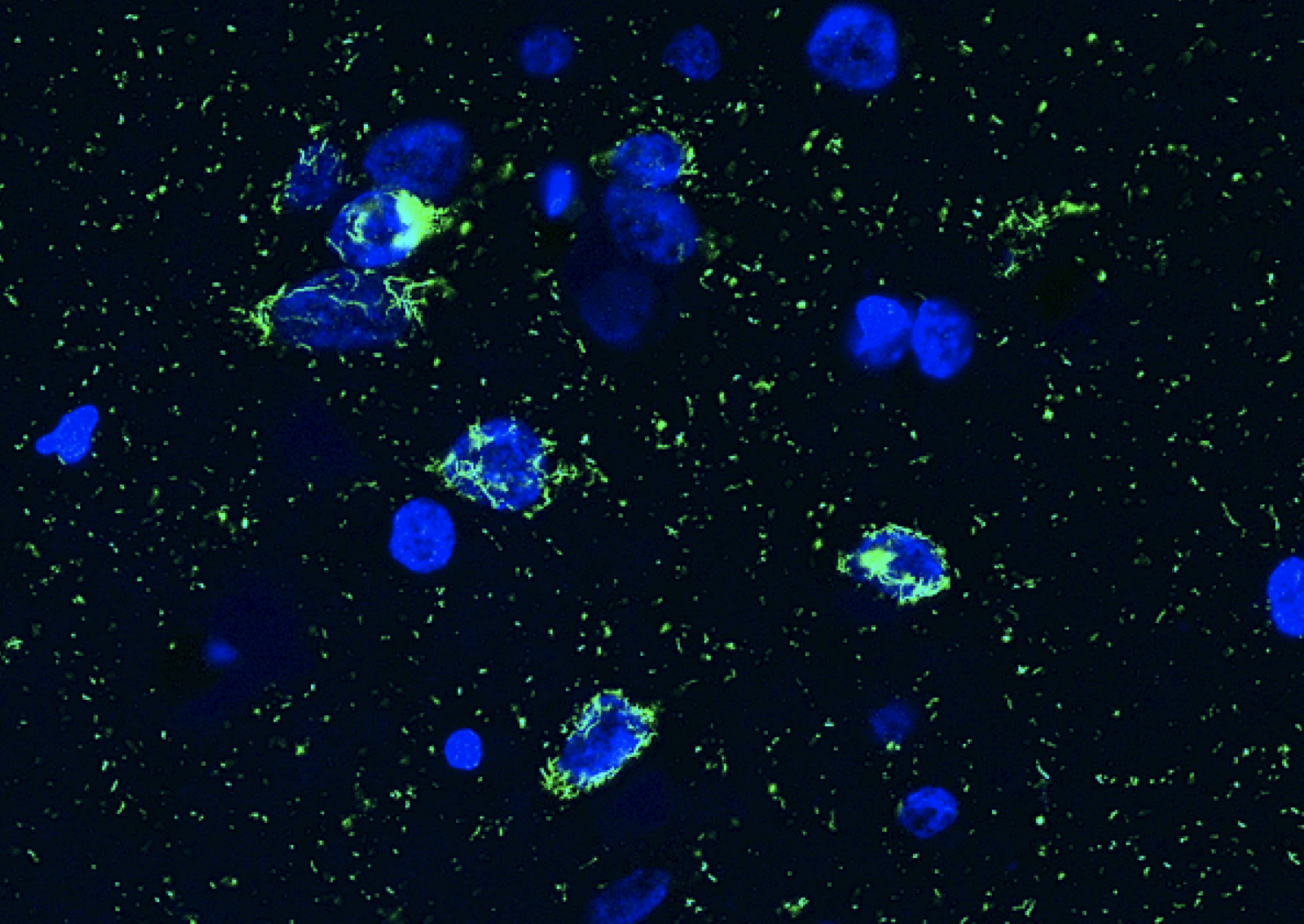Frontotemporal dementia: Prof. Manuela Neumann receives Alzheimer Research Initiative funding

Pathologically altered proteins in the central nervous system are a common feature of many neurodegenerative diseases. This is also the observed case in frontotemporal dementia (FTD), in which the protein TDP-43 plays an important role. In a new project, Prof. Manuela Neumann from the DZNE Tübingen is now investigating how changes in this protein contribute to the onset of the disease. Together with her team, she will develop antibodies against TDP-43 in order to also identify new starting points for future diagnostic procedures as well as for advanced treatment approaches. The project will run for three years and is funded by the non-profit Alzheimer Forschung Initiative e.V. (AFI) with 120,000 euros.
Frontotemporal dementia (FTD), also known as frontotemporal lobar degeneration (FTLD), is a rare form of rapidly progressive dementia in which neurons in the frontal lobe and temporal lobe die. Important mental functions are controlled in these brain areas: the tasks of the frontal lobes include social behavior and behavioral control, while the temporal lobes are important for language comprehension, among other things.
Altered personality and conspicuous social behavior
Symptoms vary greatly from patient to patient, depending on the area of the brain in which neurons die. The forms of frontotemporal dementia are usually first noticed due to changes in personality and behavior: Initially, the persons affected often appear unfocused, disinterested, and careless. As the disease progresses, many stand out for their lack of tact and empathy as well as disinhibition. Speech disorders may be added over time. These are prominent in the speech-related variants of frontotemporal dementia. The changes have a major impact on the daily lives of those affected and their families.
Affected individuals are usually younger than patients with Alzheimer's disease at the onset of the disease. Symptoms often first appear between the ages of 45 and 65, although the disease can also break out significantly earlier or later - between the ages of 20 and 85.
Pathological deposits of TDP-43 detectable in the brain
In the most common form of the disease, pathological deposits of the protein TDP-43 are found in the brain. Therefore, this form of frontotemporal lobar degeneration is also known as FTLD-TDP. The protein TDP-43 also plays a role in amyotrophic lateral sclerosis (ALS) and possibly also in Alzheimer's disease. It is assumed that differences in the structure of TDP-43 deposits may lead to various neurodegenerative diseases. In her research project, Prof. Neumann wants to analyze the molecular complexity of the different TDP-43 deposits and define the differences. Several years ago, she had already succeeded in identifying TDP-43 as a disease-causing protein in ALS as well as frontotemporal dementia.
Developing new antibodies
With her research team, Neumann will create new antibodies against TDP-43, which will be used to detect specifically pathological forms of TDP-43 and different structural types of TDP-43 deposits. In addition to cell culture models, the Tübingen team has at its disposal brain samples from deceased people who had a disease with TDP-43 deposits. The goal of the new project is, on the one hand, to gain new insights into the onset and pathogenesis of the disease. In addition, Neumann and her research team want to identify new starting points for future diagnostic procedures as well as for advanced treatment approaches - for example, a possible immunotherapy.
The research project "Molecular differences of the protein TDP-43 in frontotemporal dementia" is funded with 120,000 euros over a period of three years by the Alzheimer Forschung Initiative e.V. (AFI). The AFI is the largest private supporter of Alzheimer's research at German universities and public institutions and funds projects that significantly improve current knowledge of Alzheimer's disease or related dementias in the fields of causal, diagnostic and clinical research.
Video message from Prof. Manuela Neumann about her project
February 2022
